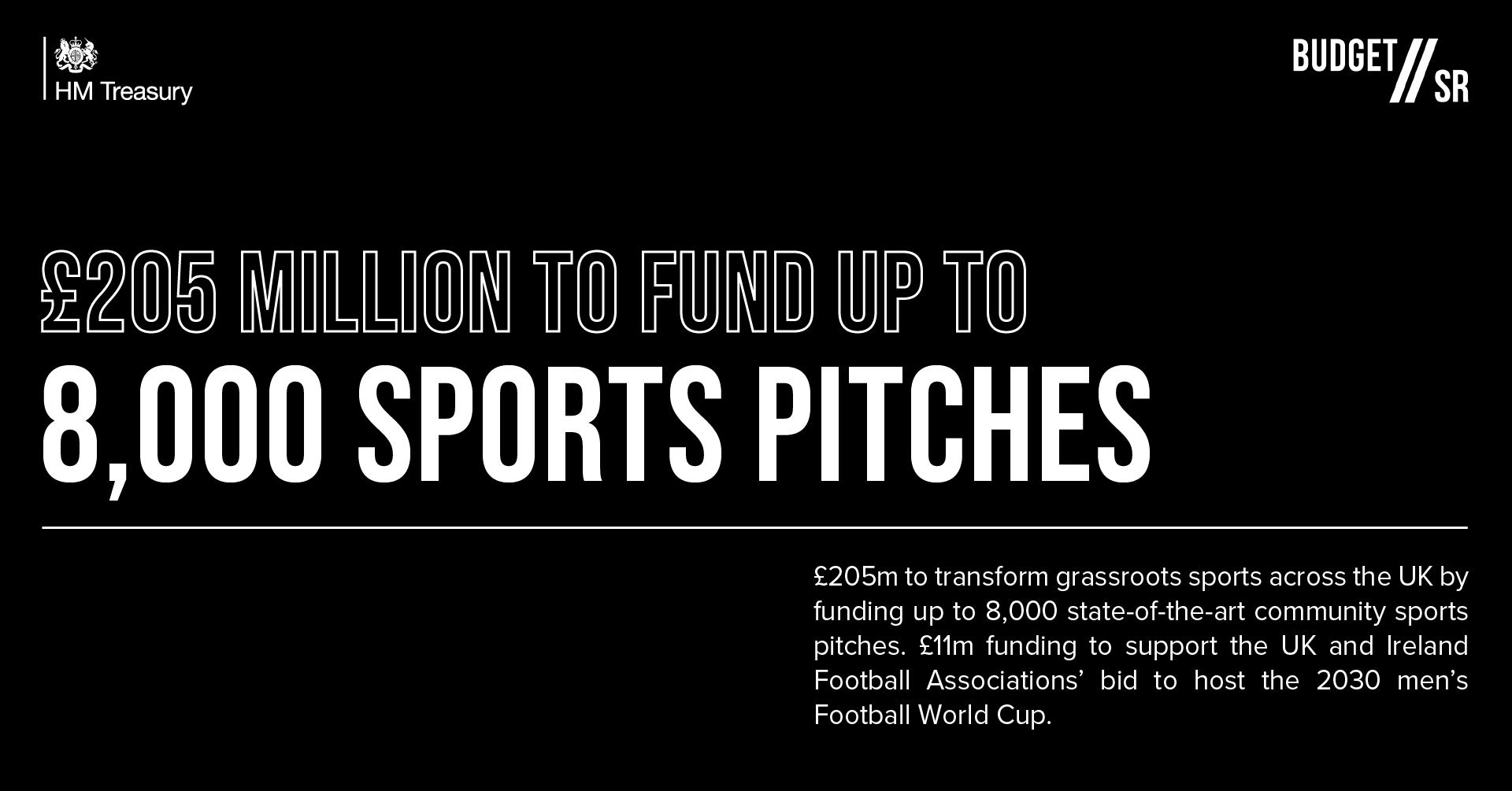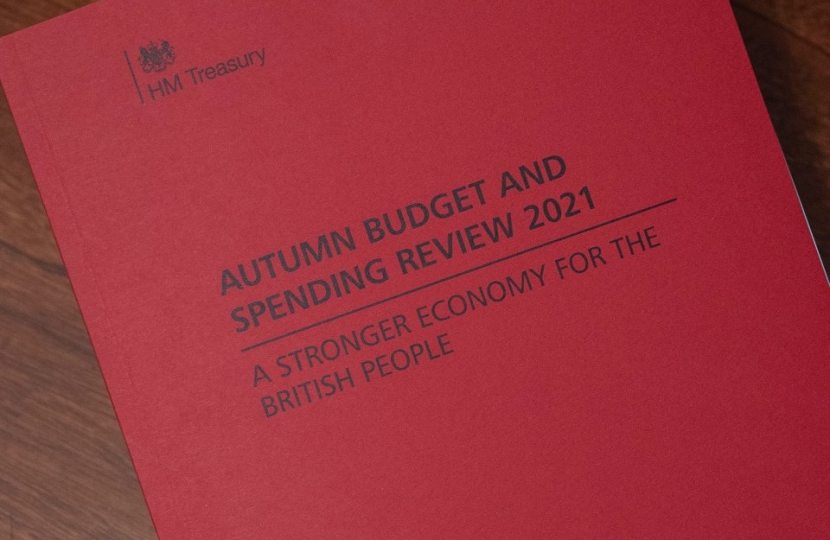Autumn Budget and Spending Review 2021 takes place as the country focuses on recovering from a period of unparalleled global economic uncertainty and challenge to move towards a more promising future.
With the economic recovery underway and emergency support winding down, the Budget and SR sets out the government’s plans to build back better over the rest of the Parliament. It does so by investing in strong public services, driving economic growth, leading the transition to net zero, and supporting people and businesses.
At the heart of these plans is the government’s ambition to level up, reducing regional inequality so that no matter where in the UK someone lives, they can reach their full potential, find rewarding work and take pride in their local area.
The Chancellor confirmed that taxpayers’ money will be spent where it makes the most difference to people’s daily lives: creating high-wage and high-skilled jobs, reducing NHS waiting lists, putting more police on the streets, upgrading roads and railways, and building new homes, hospitals and schools.
Commenting on the Budget and Spending Review, James said:
“This Budget will help working families in North West Norfolk with the cost of living, backs businesses to create jobs and growth, and it increases spending on the NHS, schools, police, and other public services. Increases in the National Living Wage, making Universal credit more generous, funding for the new hospitals programme which I’m campaigning for QEH to be part of, and cuts in business rate are particularly welcome. By investing in better broadband, improved roads and rail links, innovation, and skills, this is a plan to level up and improve opportunity here and across the country.”
Key points
State of the economy and public finances
- UK economy forecast to return to pre-Covid levels by 2022
- Annual growth set to rebound by 6.5% this year, followed by 6% in 2022
- Unemployment expected to peak at 5.2% next year, lower than 11.9% previously predicted
- Wages have grown in real terms by 3.4% since February 2020
- Borrowing as a percentage of GDP is forecast to fall from 7.9% this year to 3.3% next year
- Borrowing as a percentage of GDP will then fall in the following four years to 1.5%
- Foreign aid spending projected to return to 0.7% of GDP by 2024-25
Taxation and wages
- Universal Credit taper rate will be cut by 8% no later than 1 December, bringing it down from 63% to 55% - allowing claimants to keep more of the payment
- Confirmation business rates to be retained and reformed
- A 50% business rates discount for the retail, hospitality, and leisure sectors in England in 2022-23, up to a maximum of £110,000
- Planned rise in fuel duty to be cancelled amid the highest pump prices in eight years
- Consultation on an online sales tax
- National Living Wage to increase next year by 6.6%, to £9.50 an hour
Government spending
- Whitehall departments to receive rise in overall spending, totalling £150bn over the course of this Parliament
- Funding will rise by an average of £4.6bn for Scottish Government, £2.5bn for Welsh Government, and £1.6bn for Northern Ireland Executive
- Levelling Up Fund will mean £1.7bn invested in local areas across the UK
- Government backing projects in Aberdeen, Bury, Burnley, Lewes, Clwyd South, Stoke-on-Trent, Ashton under Lyne, Doncaster, South Leicester, Sunderland and West Leeds
- Extra £2.2bn for courts, prisons and probation services, including funding to clear the courts backlog
- Tax relief for museums and galleries will be extended for two years, to March 2024
- Core science funding to rise to £5.9bn a year by 2024-25
- £6bn of funding to help tackle NHS backlogs
- £7bn for transport projects in areas including Greater Manchester, the West Midlands and South Yorkshire
Children and education
- Schools to get an extra £4.7bn by 2024-25
- There will be nearly £2bn of new funding to help schools and colleges to recover from the pandemic
- Schools funding to return to 2010 levels in real terms - an equivalent per pupil cash increase of more than £1,500
- £300m will be spent on a "Start for Life" parenting programmes, with an additional £170m by 2024-25 promised for childcare
- A UK-wide numeracy programme will be set-up to help improve basic maths skills among adults
Air travel
- Flights between airports in the UK nations will be subject to a new lower rate of Air Passenger Duty from April 2023
- Financial support for English airports to be extended for a further six months
- From April 2023, new ultra long haul band in Air Passenger Duty for flights of over 5,500 miles introduced.
Alcohol
- Planned rise in the duty on spirits, wine, cider and beer cancelled
- Simplification of alcohol duties will see the number of rates drop from 15 to six
- Stronger red wines, fortified wines, and high-strength ciders will see a small increase in their rates
- Rates on many lower alcohol drinks including rose wine, fruit ciders, liqueurs, lower strength beers and wines to fall
- All sparkling wines to pay same duty as still wines of equivalent strength
- New, lower rate of duty on draught beer and cider will cut the rates by 5%
Housing
- £24bn earmarked for housing: £11.5bn for up to 180,000 affordable homes, with brownfield sites targeted for development
- 4% levy will be placed on property developers with profits over £25m rate to help create a £5bn fund to remove unsafe cladding
- £640m a year to address rough sleeping and homelessness.




